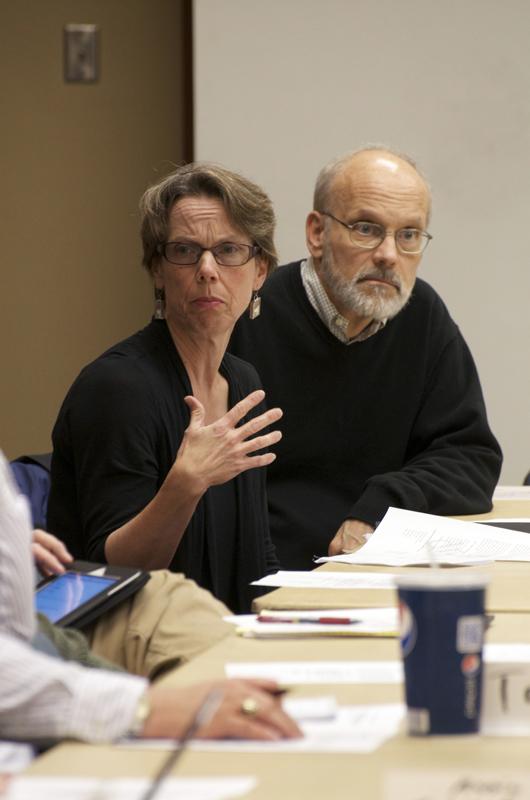
A proposal that would change MU’s definition of faculty to include non-tenure track staff was kept alive at Thursday’s Faculty Council meeting.
The proposal, which was presented by mathematics professor Stephen Montgomery-Smith, would bring about two changes. The characterization of faculty would become “all persons with full-time ranked academic appointments with professorial designation,” the proposal stated.
Additionally, the four non-tenure track representatives on Faculty Council will be granted full voting rights, except on matters involving tenure. Montgomery-Smith emphasized that while a lot will change, much will also stay the same.
“Every other aspect of how tenure track and tenured faculty are selected will remain exactly the same,” Montgomery-Smith said. “The number of tenure track and tenured representatives from each division on Faculty Council will be based upon the total number of tenure track and tenured members in each division, and the formula will remain unchanged.”
Nicole Monnier, associate professor of Russian studies, brought up some facts on the issue. Monnier — who represents teaching, non-tenure track faculty — expressed that in 2009, the average regular faculty member had been at MU for 13 years and that ranked non-tenure track staff are at MU for extended periods of time.
Non-tenure track staff are also very involved, Monnier said. She made it clear that non-tenure staff are “integrated into virtually all the structures of MU,” with a strong presence in committees and academic affairs.
“I like to call the NTT’s (non-tenure track) the Canadians,” Monnier said. “We walk among you but you don’t notice that we’re different than you.”
In fact, certain schools already grant faculty rights, Monnier said. This includes the School of Journalism, College of Veterinary Medicine, Truman School of Public Affairs and many others.
”We already have these rights on the divisional levels on all these colleges on campus,” Monnier said.
But that’s not enough, said Katherine Reed, associate professor of journalism.
“There are a lot of people who are absolutely outraged by this,” Reed said. “And my students are outraged by it. Think about the example that sets on our campus, that there are faculty members who don’t have voting rights.”
Reed, who is non-tenure track staff herself, pointed out that non-tenure track members work just as hard as tenure track professors. She said that she sits in on meetings every other week, teaches all day and serves on committees.
Faculty Council members need to think about the “justice aspect” of this, Reed said.
“We really need to decide how we feel (that NTT’s don’t get to vote), because the feedback that we got was outraged,” Reed said.
Tim Evans, associate professor of veterinary pathobiology, had a differing opinion.
“If we put it forward as it is right now, my impression, based on people that I’ve talked to, is that it’s not going to pass,” Evans said.
Faculty Council Chairman Harry Tyrer said if a motion to put the proposal forward were to pass, they should institute a frequently asked questions website, emphasizing the importance of people being informed. He said the Faculty Council could hear concerns at a future Board of Curators meeting.